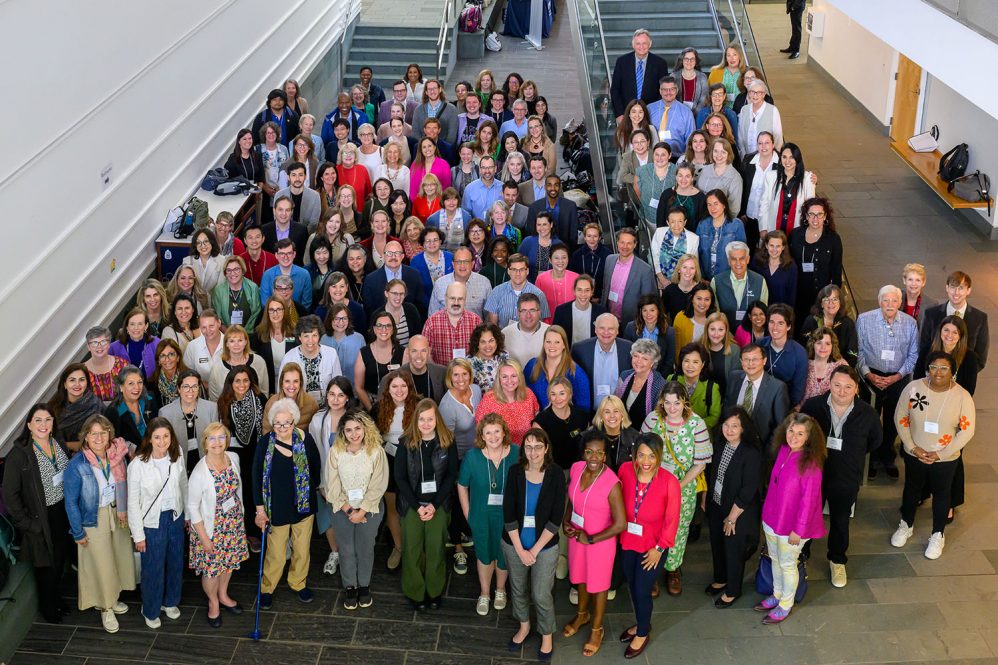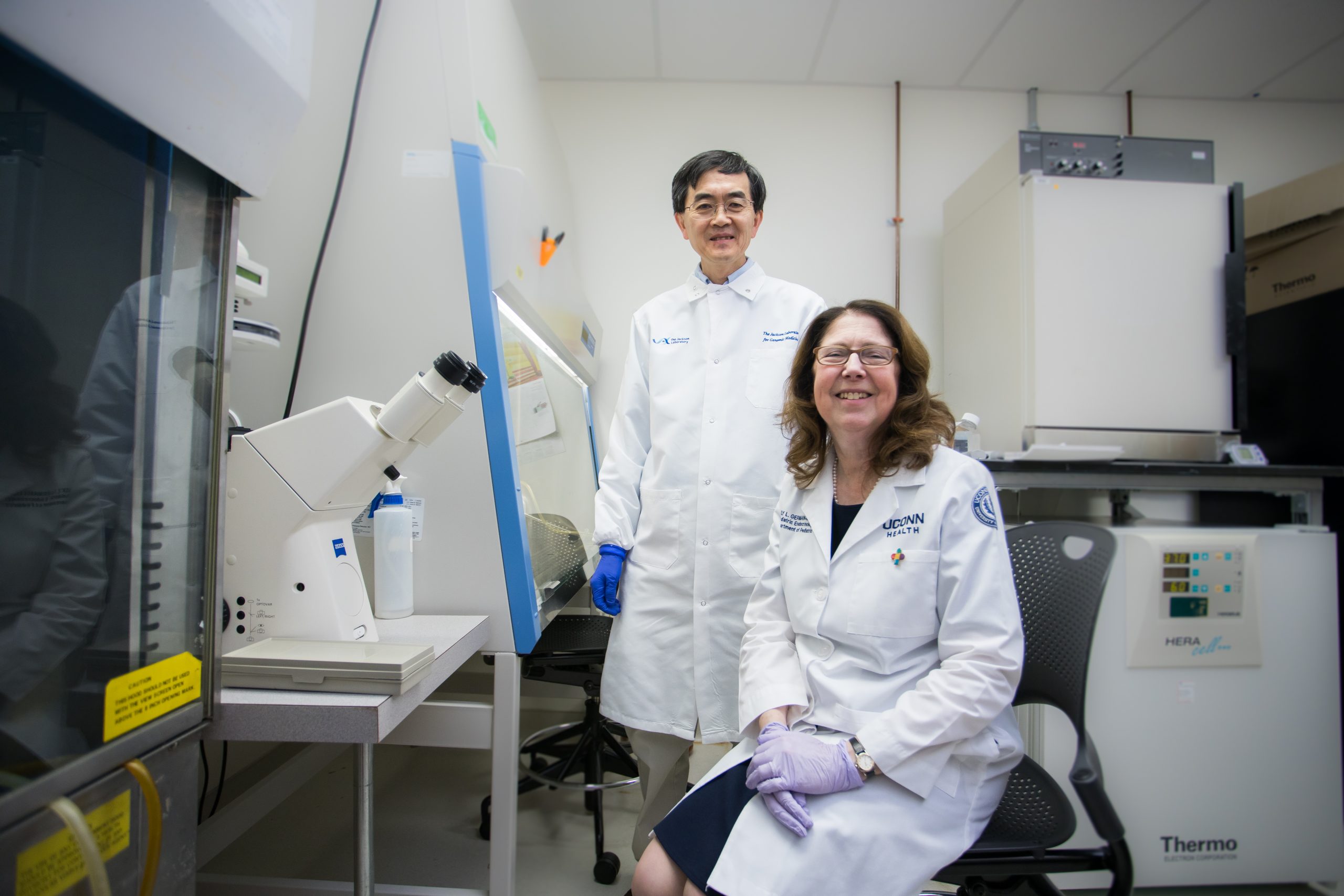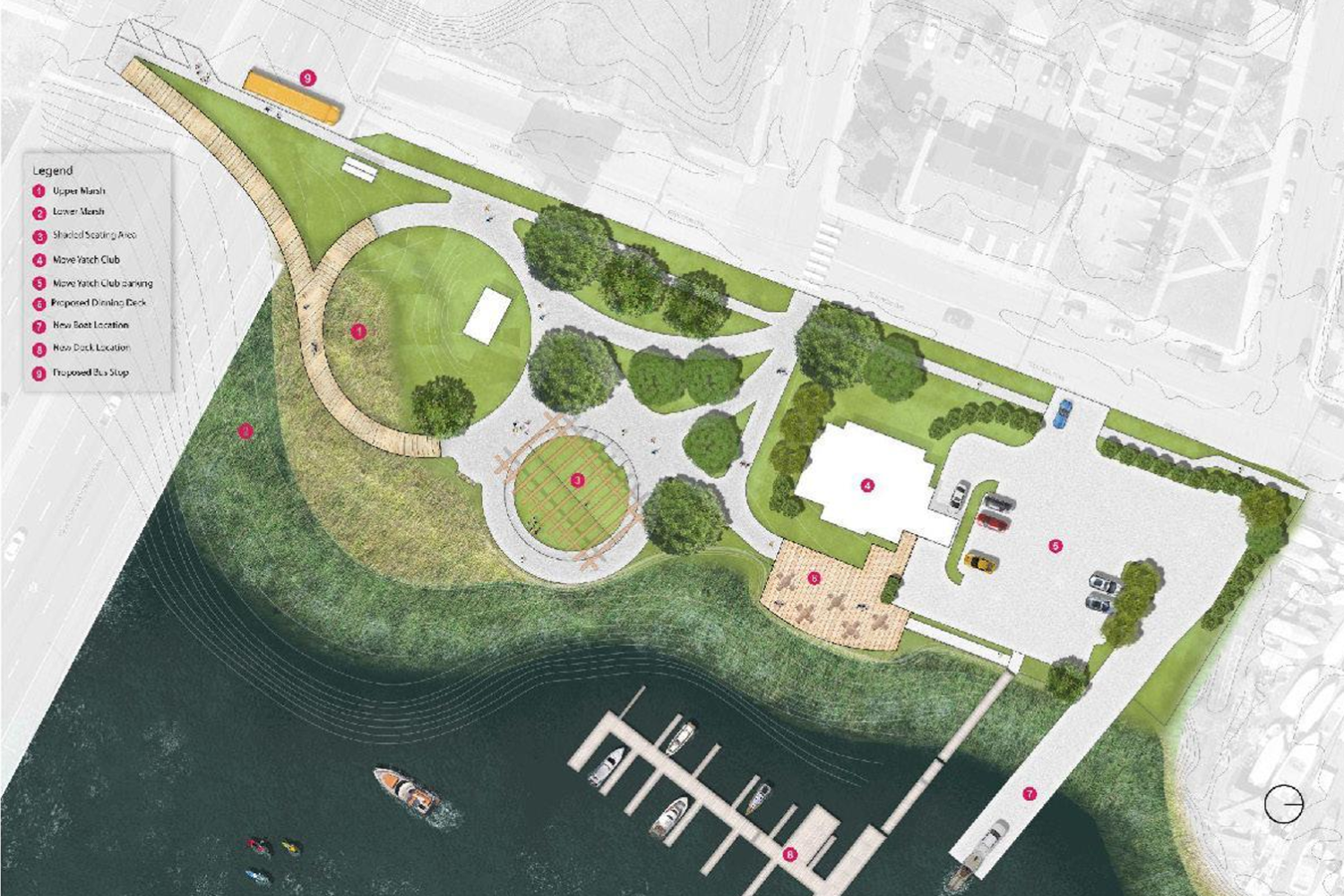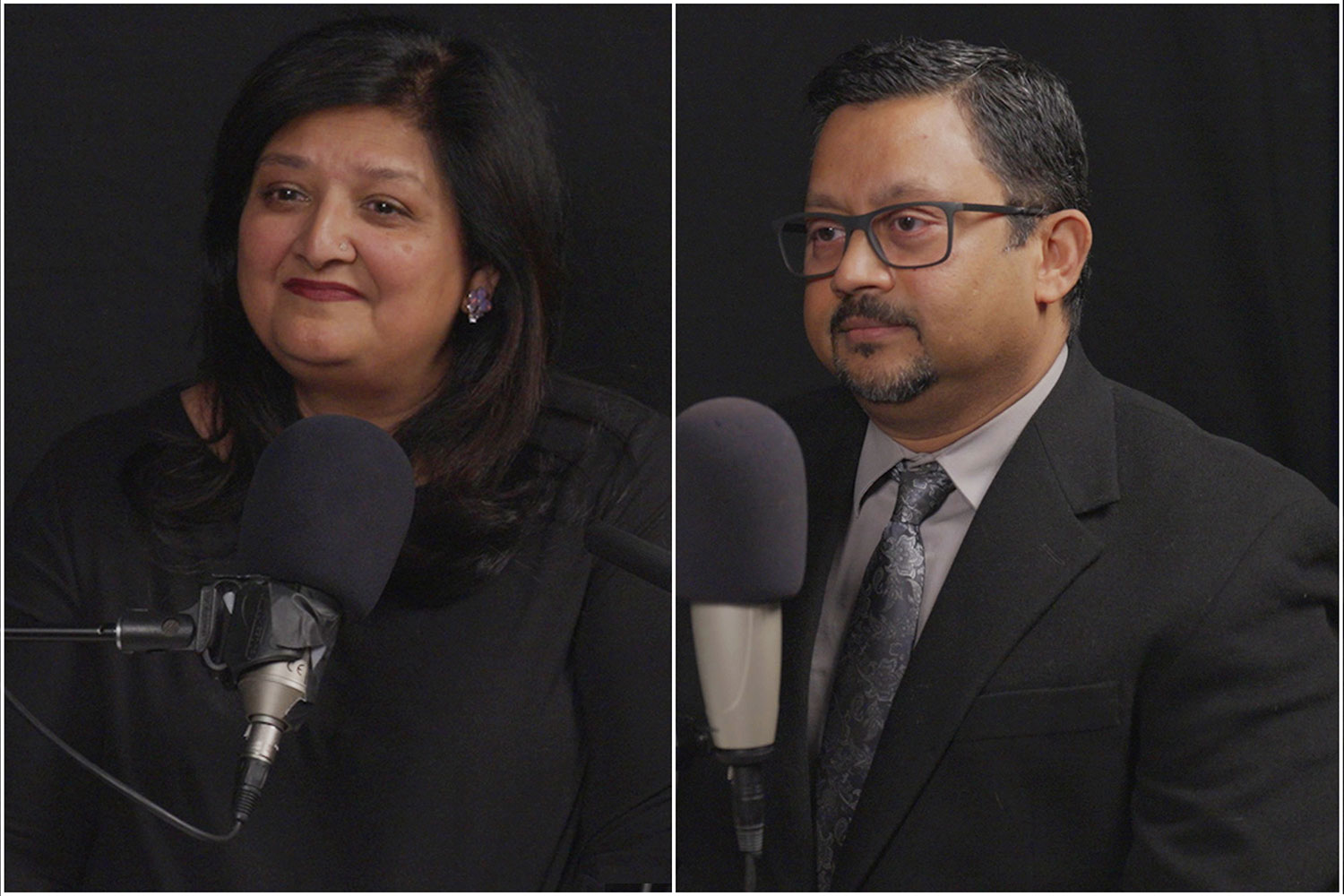On May 19, the preeminent research conference on gifted education and talent development came to Storrs for the first time. For three days, around 180 researchers, scholars, and educators filled UConn’s McHugh Hall and the third floor of the Student Union for the 2024 Wallace Research Symposium on Talent Development.
Previously hosted solely by the University of Iowa’s Belin-Blank Center for Gifted Education and Talent Development, the symposium was also co-hosted this year by UConn’s Renzulli Center for Creativity, Gifted Education, and Talent Development and the National Center for Research on Gifted Education (NCRGE).
“The Wallace Research Symposium has traditionally taken place every two years but had not been held since the COVID-19 lockdown,” says Del Siegle, UConn Neag School of Education faculty member and director of the Renzulli Center and the NCRGE. “Two years ago, at the National Association for Gifted Children’s conference, I approached Megan Foley Nicpon, the new director at the Belin-Blank Center, about collaborating to hold the symposium at UConn. She embraced the idea, and we began holding monthly planning meetings online.”
When my colleague Dr. Del Siegle mentioned that our Renzulli Center was looking to collaborate with Iowa’s Belin-Blank Center to host this illustrious gathering, I couldn’t think of a more natural partnership. — Dean Jason G. Irizarry
The Renzulli Center, part of the Neag School, is one of the leading centers in the world in gifted education and talent development. Since 1996, the center has promoted enjoyment, engagement, and enthusiasm for learning in educators and students at all levels through research and professional learning activities. Its affiliated faculty are renowned experts in the field and the center supports graduate students in master’s/sixth-year, Ph.D., and online certificate programs.
It was a natural partnership, then, for the Renzulli Center to join with Iowa’s Belin-Blank Center for this year’s Wallace Research Symposium. The Belin-Blank Center aims to create opportunities for equitable talent development through five strategic priorities: outreach, professional learning, psychological services, research, and student programming. Founded in 1988, the center launched the Wallace Research Symposium after a generous endowment from the Wallace Research Foundation.
“Henry B. (H.B.) Wallace was an exceptionally talented individual who used his abilities to enhance society,” says Foley Nicpon, director of the Belin-Blank Center. “H.B. and his wife, Jocelyn, deeply cared about students and the future of American education and demonstrated this caring by their outstanding support of the Belin-Blank Center at the University of Iowa. H.B. and Jocelyn strongly believed that the future of America rested with its young people and that students of exceptional educational promise should have every opportunity to develop their talents and then use these talents to better society.”
The specified gallery id does not exist.
The 2024 symposium began on May 19 with a keynote by Malik Henfield, professor in the School of Education and founding dean of the Institute for Racial Justice at Loyola University Chicago, titled “Illuminating Equitable Pathways: Unveiling Racial Dynamics in Gifted Education.” A panel discussion on the future of gifted education and talent development followed later in the evening.
On Monday, May 20, Neag School Dean Jason G. Irizarry welcomed the symposium attendees to Storrs before a full day of activities.
“When my colleague Dr. Del Siegle mentioned that our Renzulli Center was looking to collaborate with Iowa’s Belin-Blank Center to host this illustrious gathering, I couldn’t think of a more natural partnership,” Irizarry said. “Both centers have led the way in creativity, gifted education, and talent development for decades. I knew their collaboration would only further enhance a symposium that has always offered innovative programming and rich opportunities for experts like yourselves.”
He also took a moment to thank the planning team behind the 2024 symposium: Brian Douglas, Foley Nicpon, Stephanie Huntington, Emily Ladendorf, Catherine Little, Ann Lupkowski-Shoplik, D. Betsy McCoach, Lisa Muller, Siegle, and Siamak Vahidi.
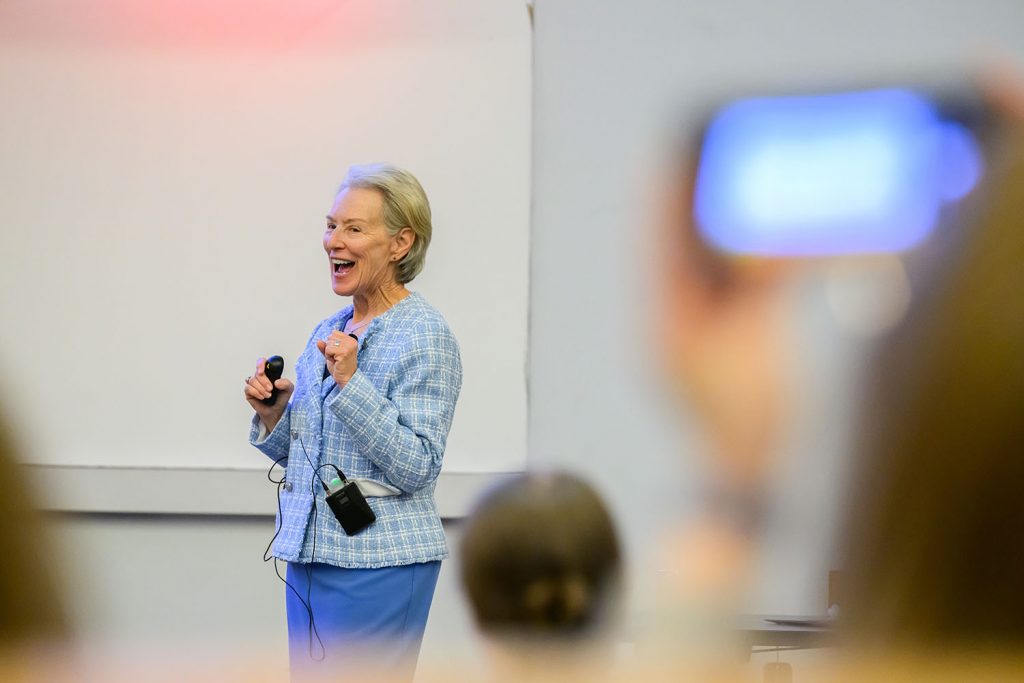
Lecture during the Wallace Research Symposium on Talent Development at UConn Storrs on May 20. (Peter Morenus/UConn Photo)
Another Monday highlight was the Julian C. Stanley Distinguished Lecture, given in the morning by Susan Assouline, emerita director of the Belin-Blank Center. Her lecture was titled, “Current Mindsets in Gifted Education and Talent Development: What Happened to Talent Discovery?”
Most of the rest of Monday was then dedicated to paper sessions, with three invited speakers presenting around midday: Rena Subotnik, Sally Reis, and Frank Worrell. Before an evening of poster presentations, UConn’s Provost and Executive Vice President for Academic Affairs Anne D’Alleva briefly welcomed attendees, and Laura Giuliano of the University of California-Santa Cruz gave the afternoon keynote on “Gifted Education Research from the Economists’ Perspective: What Have We Learned?”
The final day of the symposium featured additional paper sessions and three more invited speakers – Paula Olszewski-Kubilius, Jacob Michaelson, and Franzis Preckel – before Po-Shen Loh of Carnegie Mellon University gave the closing keynote: “Uniting Game Theory, Math Stars, and Actors to Build Human Intelligence in the AI Age.”
“It was a pleasure to host the nation’s and the world’s top researchers in gifted education and talent development here at UConn,” Siegle says. “We were proud to showcase our beautiful campus and share the cutting-edge research being conducted by the Renzulli Center’s faculty and staff.”
To learn more about the 2024 Wallace Research Symposium on Talent Development, visit gifted.uconn.edu/wallace.
